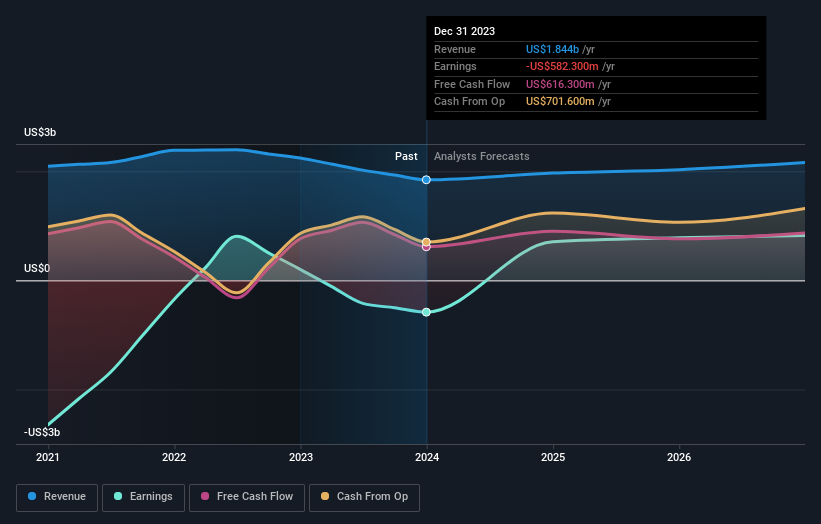Hongkong Land Holdings Limited's (SGX:H78) largest shareholders are private companies with 53% ownership, individual investors own 35%
Key Insights
The considerable ownership by private companies in Hongkong Land Holdings indicates that they collectively have a greater say in management and business strategy
The largest shareholder of the company is Jardine Strategic Limited with a 53% stake
To get a sense of who is truly in control of Hongkong Land Holdings Limited (SGX:H78), it is important to understand the ownership structure of the business. We can see that private companies own the lion's share in the company with 53% ownership. In other words, the group stands to gain the most (or lose the most) from their investment into the company.
Individual investors, on the other hand, account for 35% of the company's stockholders.
Let's take a closer look to see what the different types of shareholders can tell us about Hongkong Land Holdings.
Check out our latest analysis for Hongkong Land Holdings
What Does The Institutional Ownership Tell Us About Hongkong Land Holdings?
Institutional investors commonly compare their own returns to the returns of a commonly followed index. So they generally do consider buying larger companies that are included in the relevant benchmark index.
Hongkong Land Holdings already has institutions on the share registry. Indeed, they own a respectable stake in the company. This can indicate that the company has a certain degree of credibility in the investment community. However, it is best to be wary of relying on the supposed validation that comes with institutional investors. They too, get it wrong sometimes. When multiple institutions own a stock, there's always a risk that they are in a 'crowded trade'. When such a trade goes wrong, multiple parties may compete to sell stock fast. This risk is higher in a company without a history of growth. You can see Hongkong Land Holdings' historic earnings and revenue below, but keep in mind there's always more to the story.
Hongkong Land Holdings is not owned by hedge funds. Our data shows that Jardine Strategic Limited is the largest shareholder with 53% of shares outstanding. This essentially means that they have extensive influence, if not outright control, over the future of the corporation. With 2.7% and 2.2% of the shares outstanding respectively, First Eagle Investment Management, LLC and The Vanguard Group, Inc. are the second and third largest shareholders.
While it makes sense to study institutional ownership data for a company, it also makes sense to study analyst sentiments to know which way the wind is blowing. Quite a few analysts cover the stock, so you could look into forecast growth quite easily.
Insider Ownership Of Hongkong Land Holdings
While the precise definition of an insider can be subjective, almost everyone considers board members to be insiders. Company management run the business, but the CEO will answer to the board, even if he or she is a member of it.
Insider ownership is positive when it signals leadership are thinking like the true owners of the company. However, high insider ownership can also give immense power to a small group within the company. This can be negative in some circumstances.
Our most recent data indicates that insiders own less than 1% of Hongkong Land Holdings Limited. However, it's possible that insiders might have an indirect interest through a more complex structure. It is a pretty big company, so it would be possible for board members to own a meaningful interest in the company, without owning much of a proportional interest. In this case, they own around US$5.6m worth of shares (at current prices). It is good to see board members owning shares, but it might be worth checking if those insiders have been buying.
General Public Ownership
With a 35% ownership, the general public, mostly comprising of individual investors, have some degree of sway over Hongkong Land Holdings. This size of ownership, while considerable, may not be enough to change company policy if the decision is not in sync with other large shareholders.
Private Company Ownership
We can see that Private Companies own 53%, of the shares on issue. It's hard to draw any conclusions from this fact alone, so its worth looking into who owns those private companies. Sometimes insiders or other related parties have an interest in shares in a public company through a separate private company.
Next Steps:
It's always worth thinking about the different groups who own shares in a company. But to understand Hongkong Land Holdings better, we need to consider many other factors. Be aware that Hongkong Land Holdings is showing 1 warning sign in our investment analysis , you should know about...
If you are like me, you may want to think about whether this company will grow or shrink. Luckily, you can check this free report showing analyst forecasts for its future.
NB: Figures in this article are calculated using data from the last twelve months, which refer to the 12-month period ending on the last date of the month the financial statement is dated. This may not be consistent with full year annual report figures.
Have feedback on this article? Concerned about the content? Get in touch with us directly. Alternatively, email editorial-team (at) simplywallst.com.
This article by Simply Wall St is general in nature. We provide commentary based on historical data and analyst forecasts only using an unbiased methodology and our articles are not intended to be financial advice. It does not constitute a recommendation to buy or sell any stock, and does not take account of your objectives, or your financial situation. We aim to bring you long-term focused analysis driven by fundamental data. Note that our analysis may not factor in the latest price-sensitive company announcements or qualitative material. Simply Wall St has no position in any stocks mentioned.

 Yahoo Finance
Yahoo Finance 

